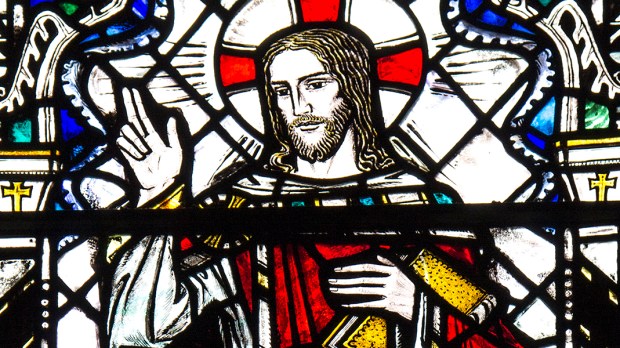O Emmanuel, Rex et legifer noster,exspectatio Gentium, et Salvator earum:veni ad salvandum nos, Domine, Deus noster.O Emmanuel, our king and our lawgiver,the hope of the nations and their Saviour:Come and save us, O Lord our God.
Tomorrow, in the darkness of the night, our Savior will come. This is the moment for which we have been longing, not simply throughout these weeks of Advent, but throughout all of history. The Church waits with bated breath. The stillness of these days builds the anticipation. And in the last moments of waiting, together we call to our Savior, O Emmanuel!
We echo the words of the prophet Isaiah: “Therefore the Lord himself will give you a sign. Behold, a young woman shall conceive and bear a son, and shall call his name Emmanuel” (7:14). Behold indeed! Our Emmanuel, our “God with us,” is coming. St. Leo the Great expressed this reality so well in his Christmas homily in 443:
Certainly, dearly beloved, the goodness of God has always looked after the human race — in various “ways” and to “many” degrees. God has imparted very many gifts of his providence to ages past. But, “in these last days,” he has surpassed all the abundance of his usual generosity. At this time, mercy itself came down in Christ for sinners, “truth” itself for the straying, and “life” itself for the dead … God born of God becomes a human being born of a human being.
This, the final and perhaps most recognizable O Antiphon, sums up the anticipation of Advent. Our king, our lawgiver, our hope and Savior, come! Come and save us! The last line of each antiphon begins with that word, “Veni!” or “Come!”
Of course, with the Church we are begging Christ to come and save us. But, in a sense, these antiphons have been calling for us to come as well. Come to the stable, to the manger. Come behold the Christ-child who was born of a Virgin for our sake. Come and meditate upon the beauty and mystery of the Incarnation. Come and contemplate the lowliness of our Savior and how the wood of the manger foreshadows the wood of the cross.
The birth of Christ is full of revelatory contrasts. Our Lord comes to us in the silence and darkness of the night, and yet we know that a star shines brightly and that the angel choirs rejoice in heaven. He is a King, yet he is born in a stable among the animals. He is the Prince of Peace, and yet his birth will lead a paranoid king to slaughter many children (Mt. 2:16). He sleeps peacefully in the arms of his mother, but his mission will lead him certain death.
And yet, though we cannot lose sight of these realities, we are invited to come, each of us, to behold and worship our Savior. To rest now, and God willing, forever, in his peace. To know his love, and to love him in return, because we are made for him, to be with him and to be loved by him. Come Emmanuel! Come and save us!

